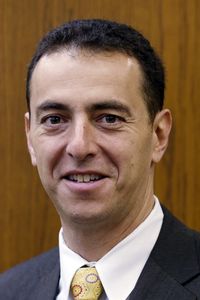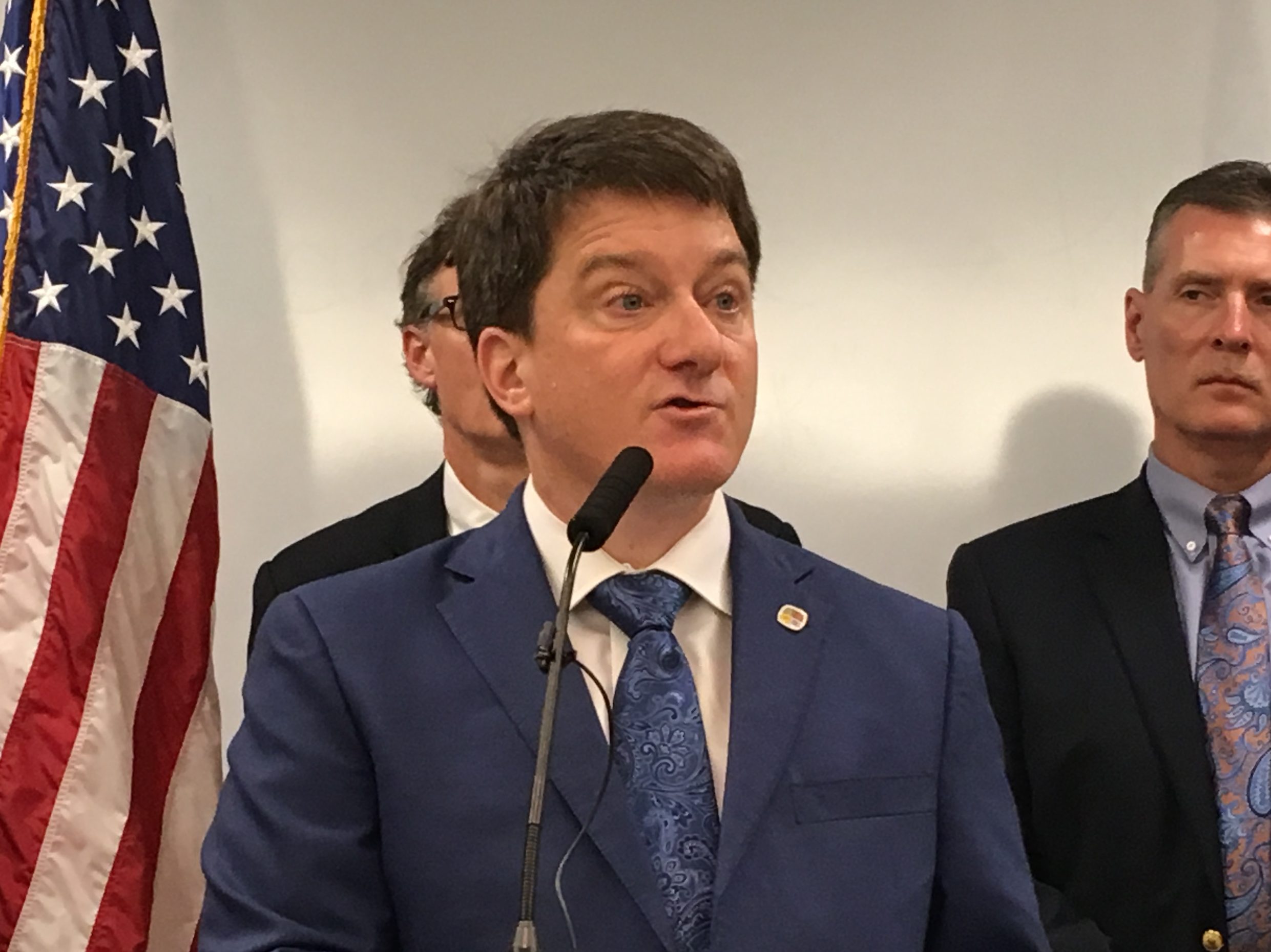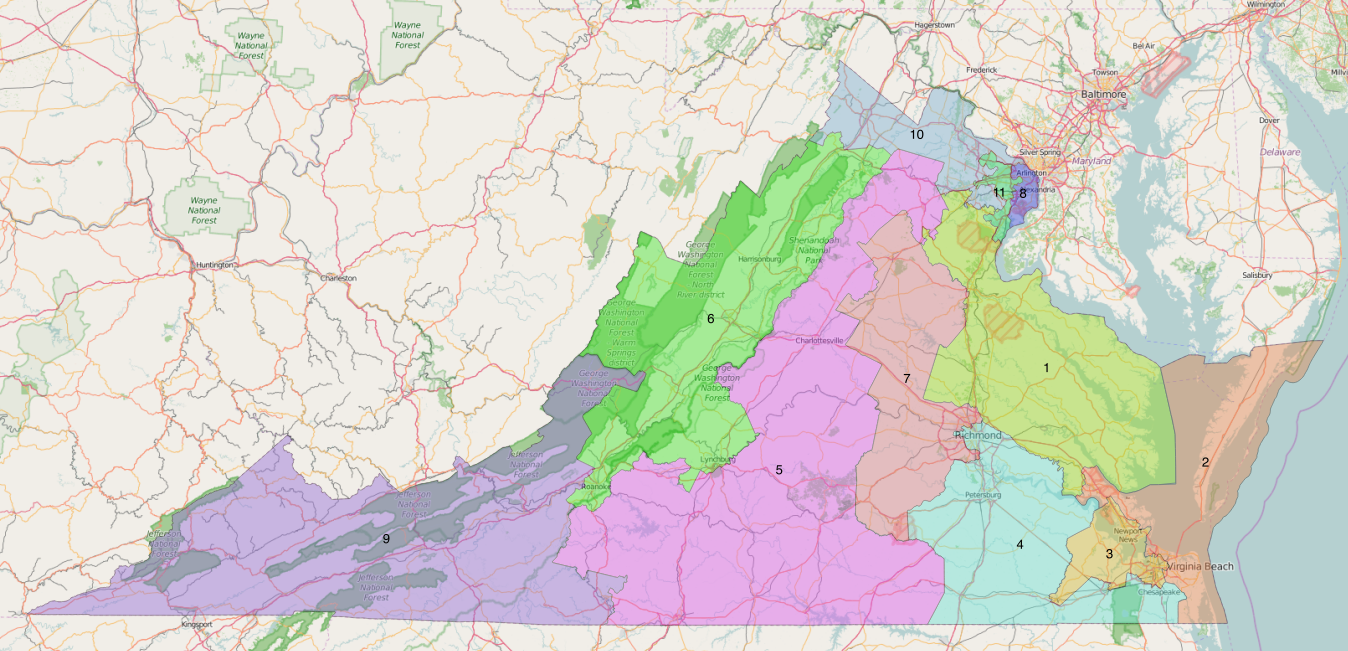Virginia Supreme Court rejects GOP mapmaker nominees
Virginia’s redistricting process continues to lurch forward. Last year, voters approved the Democrats’ legislation creating a new, bipartisan committee to draw the districts for state and federal elections. That committee, however, met for two months and then collapsed, unable to overcome its partisan differences. The state’s redistricting process will now be steered by the Virginia Supreme Court.
Each party is responsible for submitting a list of three map drawers to the court. The court is supposed to pick one from each list, and the two chosen map drawers will work together to create a viable map.
Last Friday, members of the court reviewed the submitted lists of map drawers from each party, and didn’t like what they saw—the court ordered the Republicans to go back to square one, and come up with three new names. Every GOP nominee had worked directly with Republicans in redistricting in the past, and the court suggested they wouldn’t be neutral enough for the process.

The court also told the Democrats to submit an additional name, as one of the proposed drawers expressed reservations about the process by which two map drawers will be able to collaborate on a single final map. The initial Dem list included three political science professors, all from California.
Delegate Marcus Simon, one of the Democratic legislators who served on the now-defunct redistricting commission, sounded off on the developments on Twitter. “Glad to see the GOPs initial attempt to inject hyper-partisan mapmakers into the process has been thwarted for the time being,” Simon wrote. “It will take continued vigilance on the part of Democratic lawmakers & advocates to keep them honest going forward.”
Huge gift to LAJC
The Legal Aid Justice Center, an anti-poverty and criminal justice reform advocacy organization based in Charlottesville, received a whopping, unrestricted gift of $10 million from local mega-donor Sonjia Smith last week. Angela Ciolfi, LAJC’s executive director, says she’s already begun meeting with community organizations from across the commonwealth, and that LAJC plans to expand its operations into new areas of the state.
The gift will allow the LAJC to work more closely with existing networks in Charlottesville, Richmond, Falls Church, and Petersburg, and to expand in Hampton Roads and other parts of Virginia, the organization says. “I trust Angela and her team to be the deeply passionate advocates I’ve known them to be, and I trust them to use this gift to go where communities tell them to go and do what communities tell them they need,” said Smith.
In brief
More early birds than ever
UVA saw a 17 percent increase in early decision applications and a seven percent increase in early action applications from 2020 to 2021. The school eliminated its binding early decision option in 2006, in an effort to even the playing field for low-income students, but reinstated the option in 2019. This year, the school received 3,442 early decision applications and 31,152 early action applications. There was an increase in early applicants across all demographics, except for the Native American applicant pool, which had 28 applicants in this year’s and last year’s cycles. First-generation applications increased by 29 percent, and legacy applications went up by 2 percent.
City spokesman resigns
Three things in life are certain: death, taxes, and Charlottesville government officials resigning. The latest city employee to move on to greener pastures is communications director Brian Wheeler, who held the job for three years. Wheeler says he and his family plan to leave the Charlottesville area.

Progressive candidate joins Albemarle prosecutor’s office
Former Charlottesville commonwealth’s attorney candidate Ray Szwabowski has joined the Albemarle County CA’s office as a prosecutor. Szwabowski was a public defender before running for the city’s prosecutor job this summer, arguing that Charlottesville punishes those who have committed crimes too harshly. “I’m excited to have this outstanding lawyer join the team and help us move our progressive agenda forward,” says county CA Jim Hingeley.
Updated 11/18 to clarify the mission of the LAJC.















